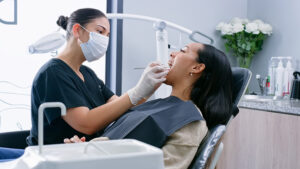Ameritas Insights
FEATURED CONTENT
Exploring Barriers to Dental Care in America
January 28, 2026
| 9 min read
9 min read
Three New Year’s Retirement Resolutions for Your Plan
January 8, 2026
| 6 min read
6 min read
Life Insurance Planning: The Difference 20 Years Makes
January 5, 2026
| 7 min read
7 min read
Insights for Life
Should You Convert Term Life Insurance to Permanent? What…
February 5, 2026
| 8 min read
8 min read
How Does an Annuity Work for Retirement?
January 5, 2026
| 7 min read
7 min read
Rethinking Your Retirement Strategy: What is an Indexed Annuity?
November 25, 2025
| 6 min read
6 min read
Insights for Wealth
What Is a Multi-Generational Trust?
January 26, 2026
| 9 min read
9 min read
January 22, 2026
| 8 min read
8 min read
Why Reviewing Personal Finances Matters
December 12, 2025
| 5 min read
5 min read
Insights for Health
February 11, 2026
| 6 min read
6 min read
Three Things to Know About Hearing Loss and Hearing…
February 3, 2026
| 6 min read
6 min read
Are Earbuds Safe for Kids? How They Compare to…
January 27, 2026
| 7 min read
7 min read
Insights for Business
How to Get Employees to Visit Network Dental Providers
December 1, 2025
| 3 min read
3 min read
The Business Benefits of Good Customer Service
October 30, 2025
| 8 min read
8 min read
Helping Employees Embrace Change and Build Resilience
October 21, 2025
| 8 min read
8 min read
Latest from the Newsroom
Ameritas congratulates Dan Galli on his new role as…
February 4, 2026
| 4 min read
4 min read
Nebraska nonprofits to receive over a million dollars from…
December 17, 2025
| 5 min read
5 min read
Ben Nordman given lifetime achievement award
November 5, 2025
| 4 min read
4 min read


















